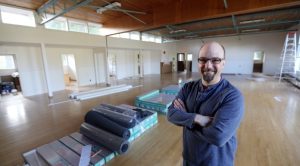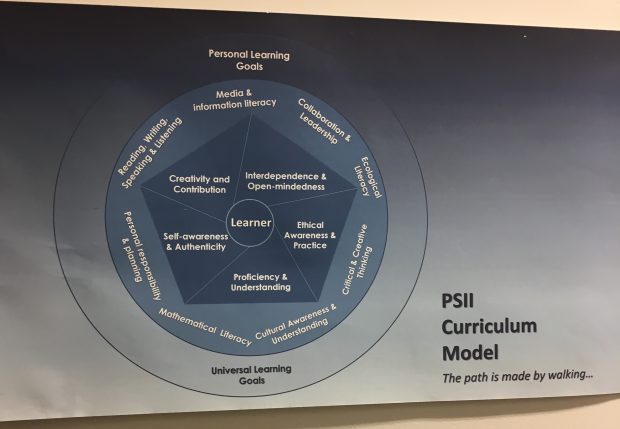This week we had the opportunity to visit the Pacific School of Innovation and Inquiry or PSII ( ‘sigh’) in Victoria, B.C.. This is an independent school founded by Jeff Hopkins that has now been operational in Victoria for 7 years and currently has 95 high school students enrolled and 7 teachers on staff. Inquiry is the basis of the student’s education and through their own personalized inquiry questions they work through the B.C. curriculum in a holistic and interdisciplinary way. Gone are the 50 minutes blocks of individual subject transmission style instruction and lesson plans designed for……. well who exactly?

I left this session completely inspired to try to learn more about inquiry based learning and how I might incorporate it into my own teaching practice. Teachers are more likely to work lesson plans around student interest and real world experience in the earlier grades, but as the students progress, this form of teaching is lost and replaced with a focus on individual subjects and standardized testing. Jeff’s argument is that this model doesn’t prepare students for the real world where soft skills including critical thinking, collaboration and negotiation are valued far above what you can regurgitate of your Math 11 or Biology 12 text book.
In the cafe style, thinking, working and collaboration main room of PSII, I saw students engaged in what they were doing and this was the most inspiring sight. One thing I have noticed in observing middle school classrooms in the public school setting is that this engagement is easier said than done and that a key component to student engagement in the classroom seems to be the content relevancy to student interest’s and student life and the perceived usefulness of what is being learned in terms of navigating the ‘real world’ after graduation. What better way to ensure lesson plans are relevant to students than for the students themselves to have a say in what those lesson plans are? It seems obvious now that if students have some agency over what they are learning then all those things that we have come to know that increase student success and knowledge retention including discussion, engagement, curiosity and intrinsic motivation will be present before the actual learning even starts to take place. If as teachers our goals include helping learners to be dependent on themselves and encouraging student self determination to increase intrinsic motivation then isn’t it our duty to try to figure out how to incorporate inquiry based learning into at least portions of our daily teaching practice?

Leave a Reply